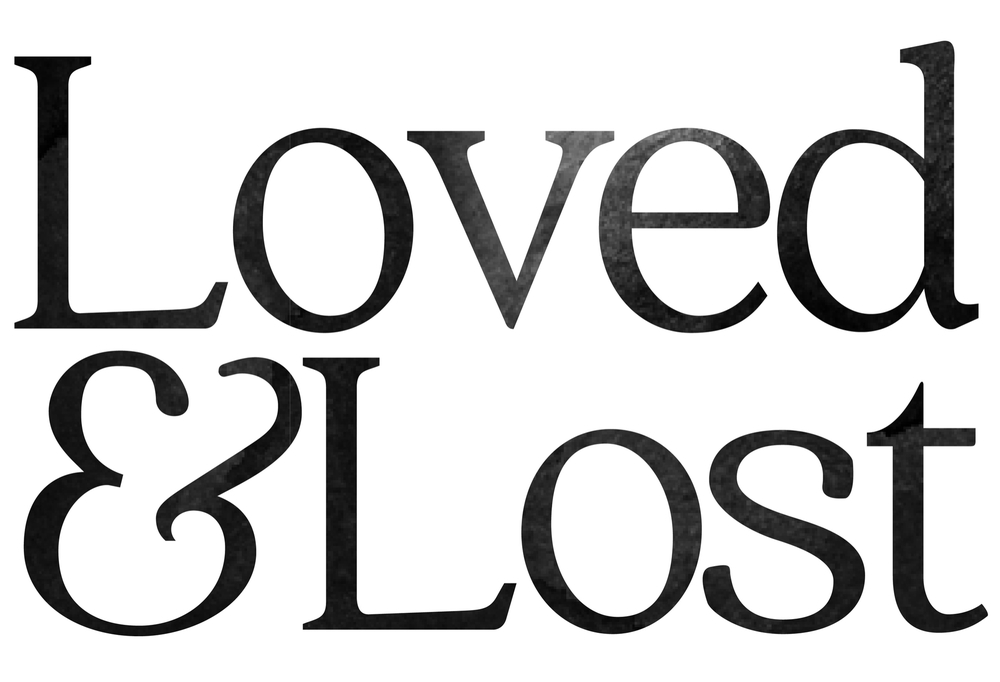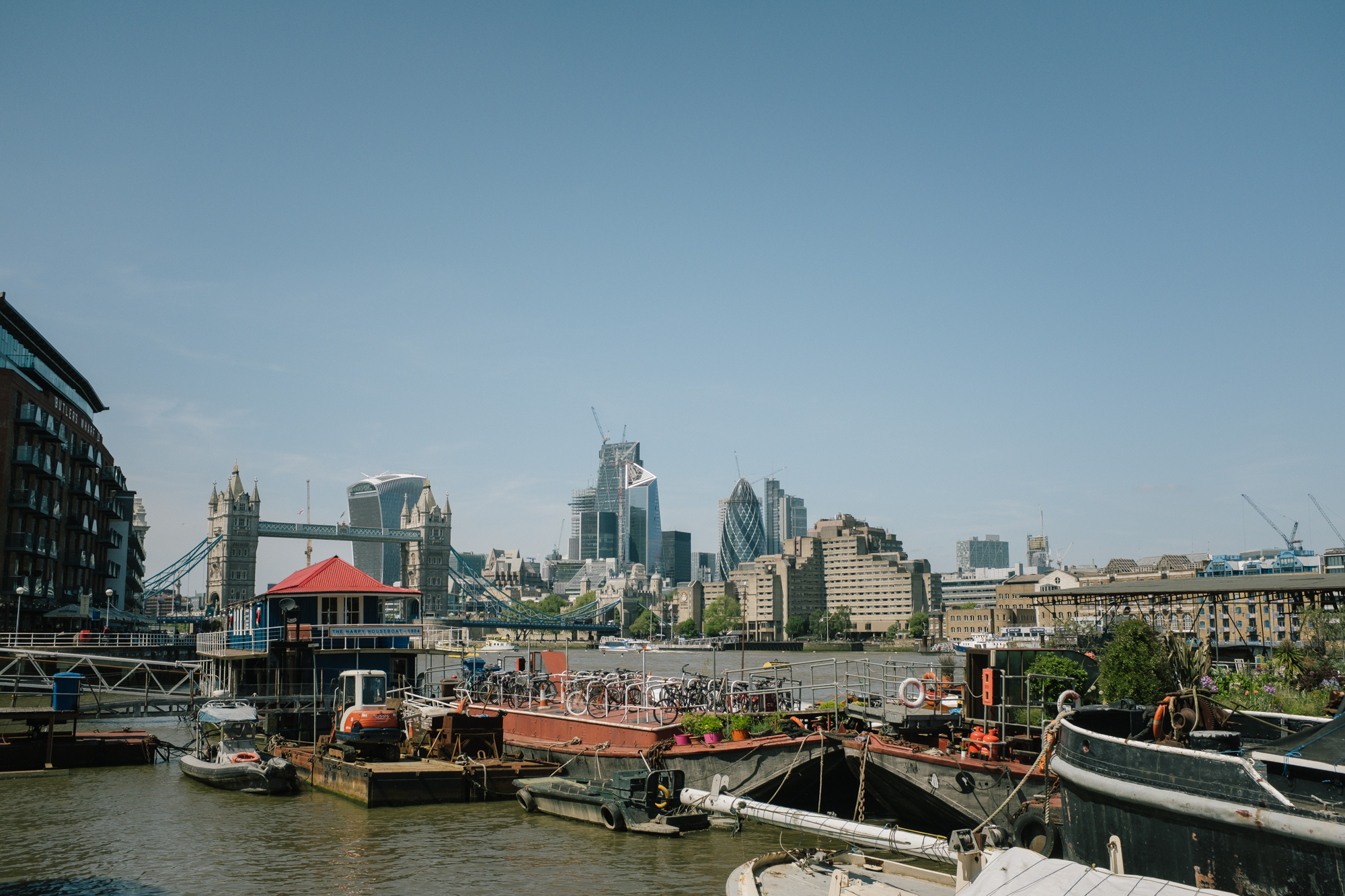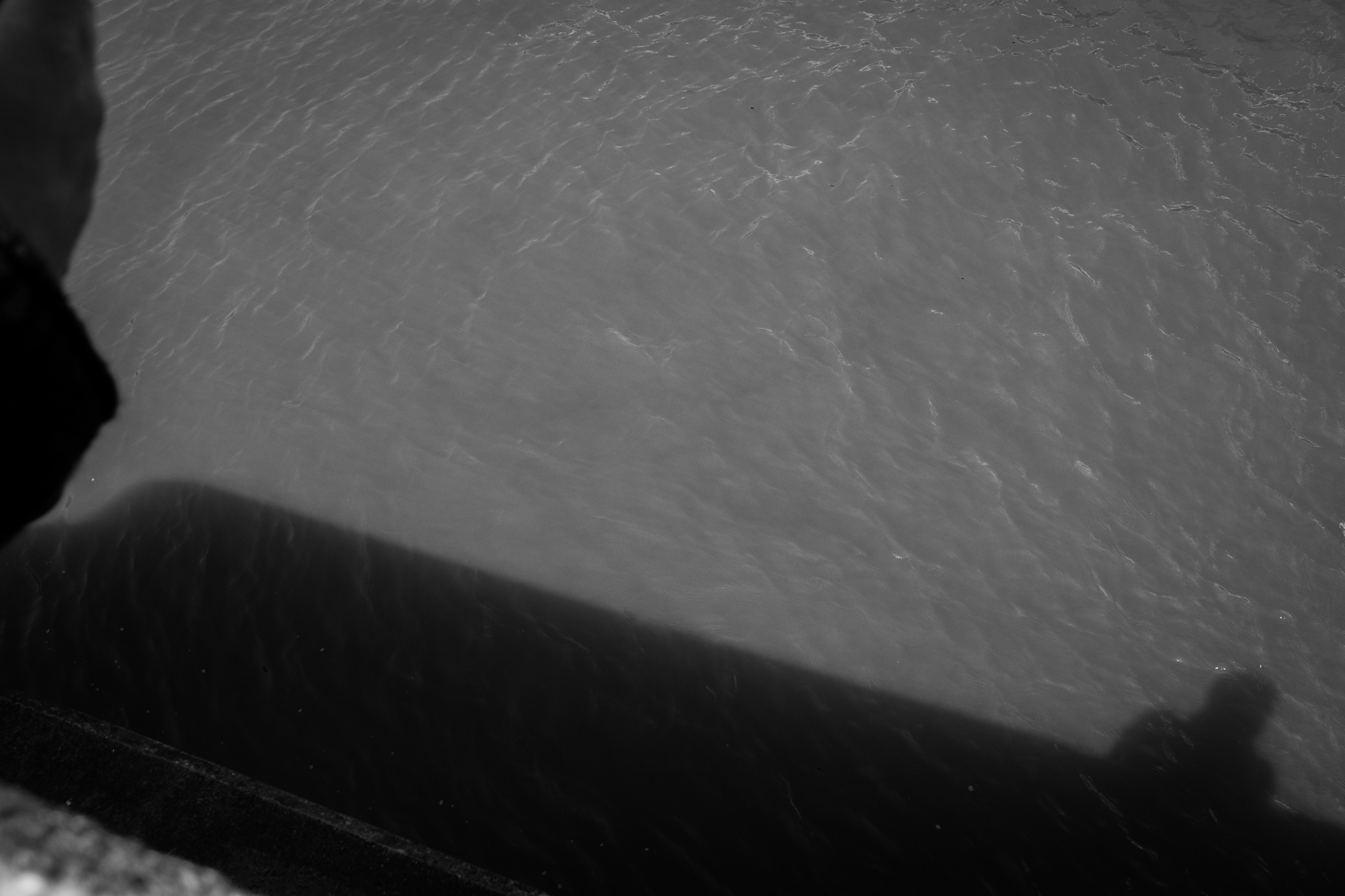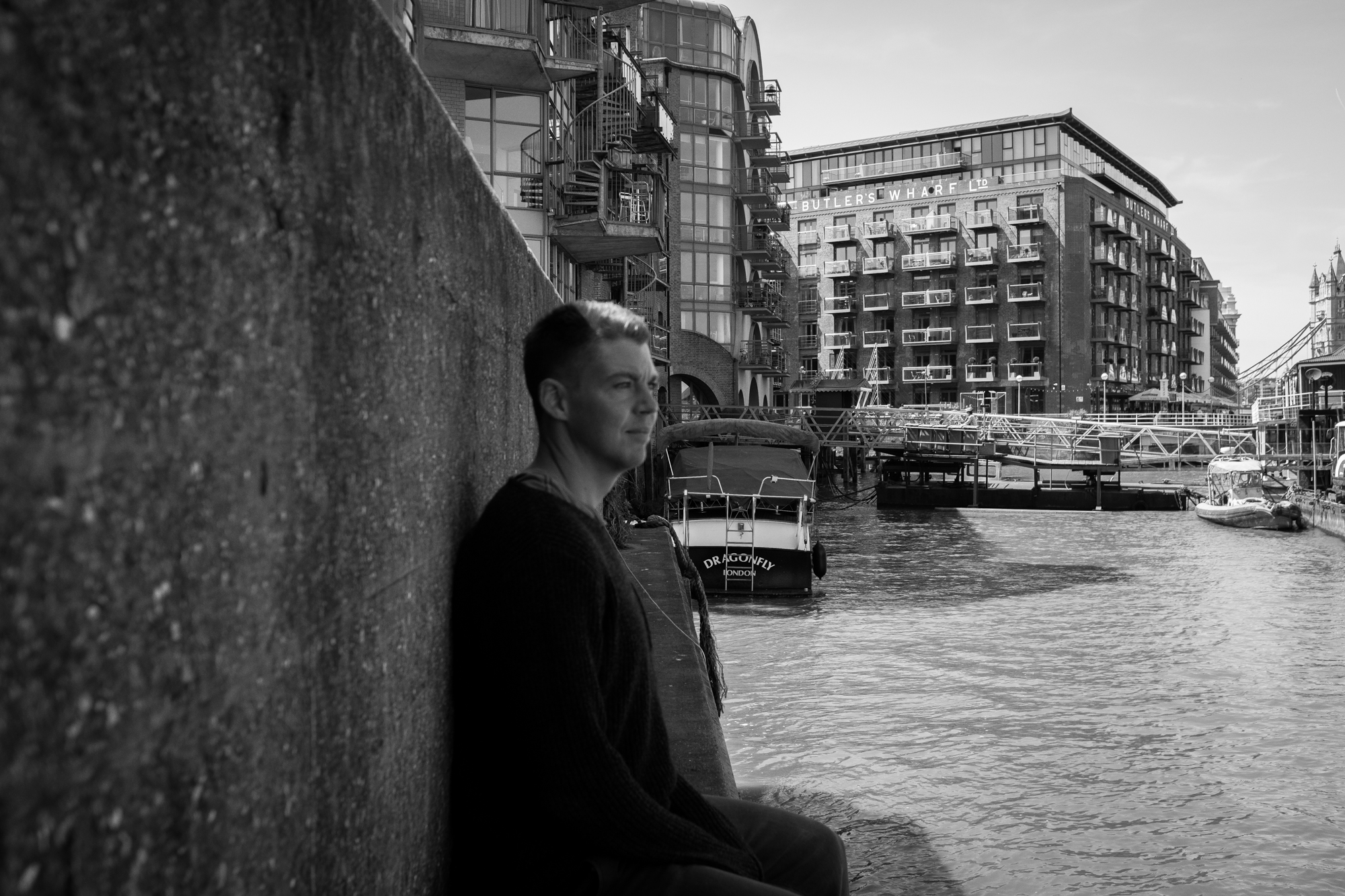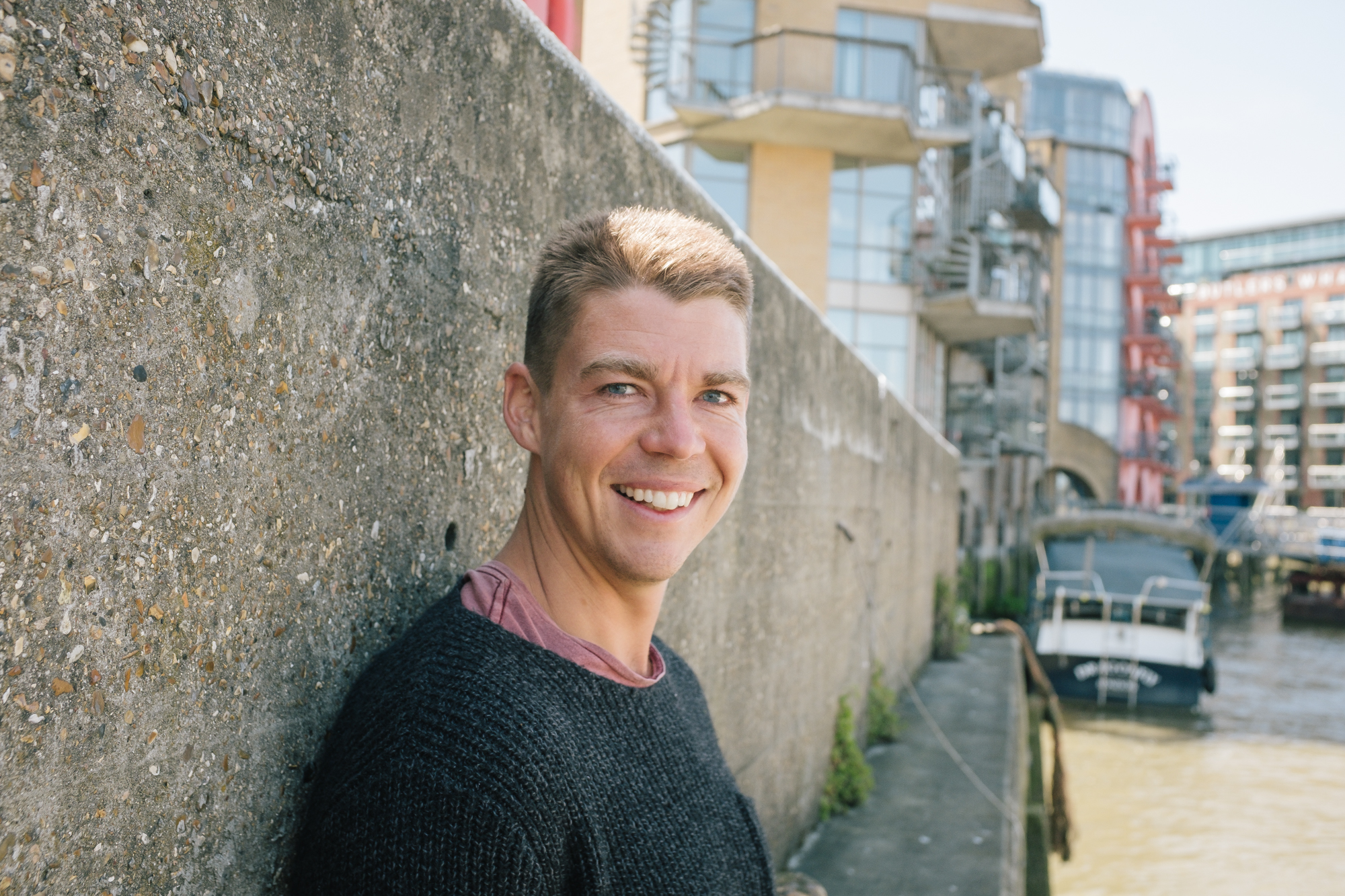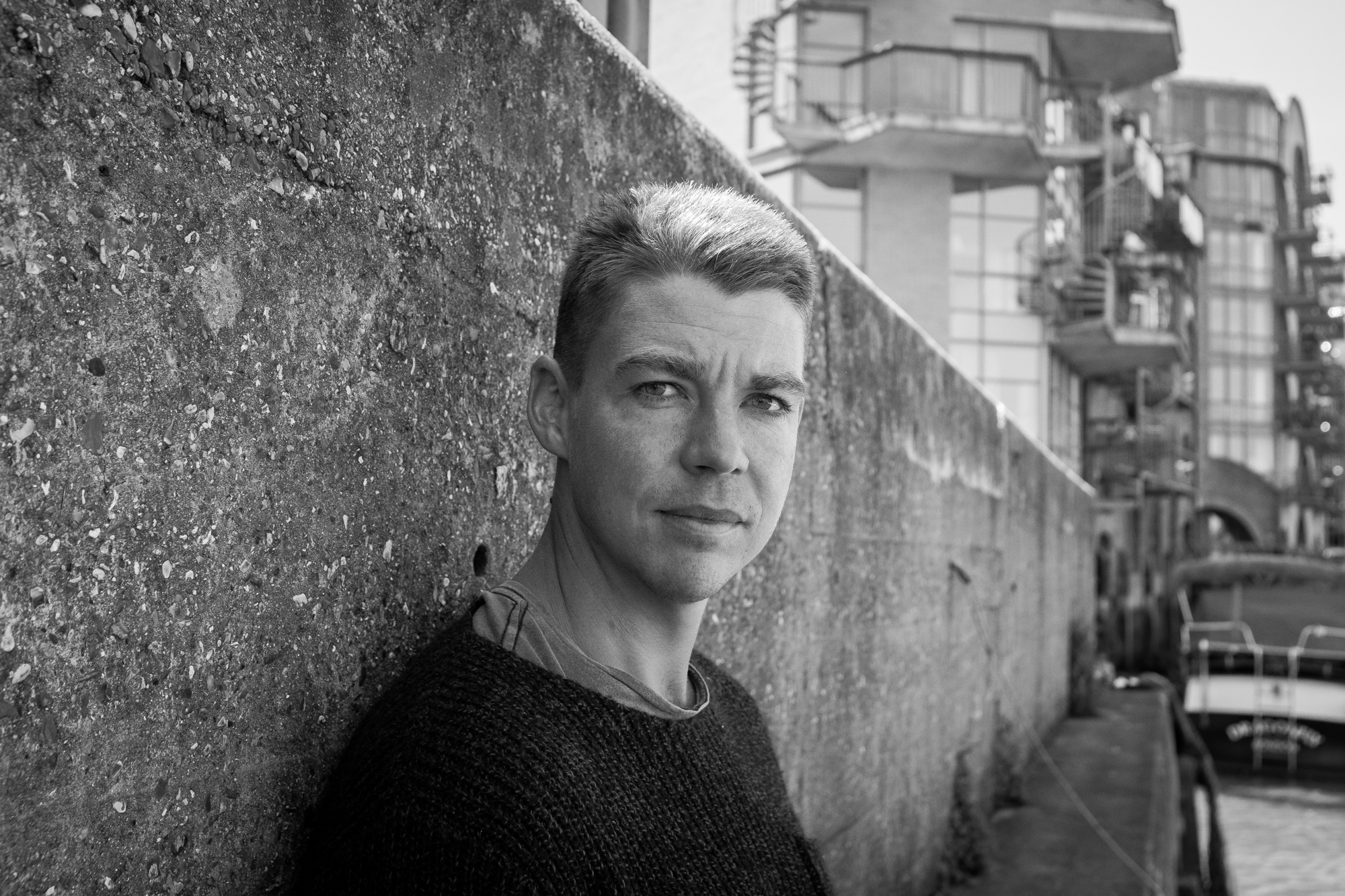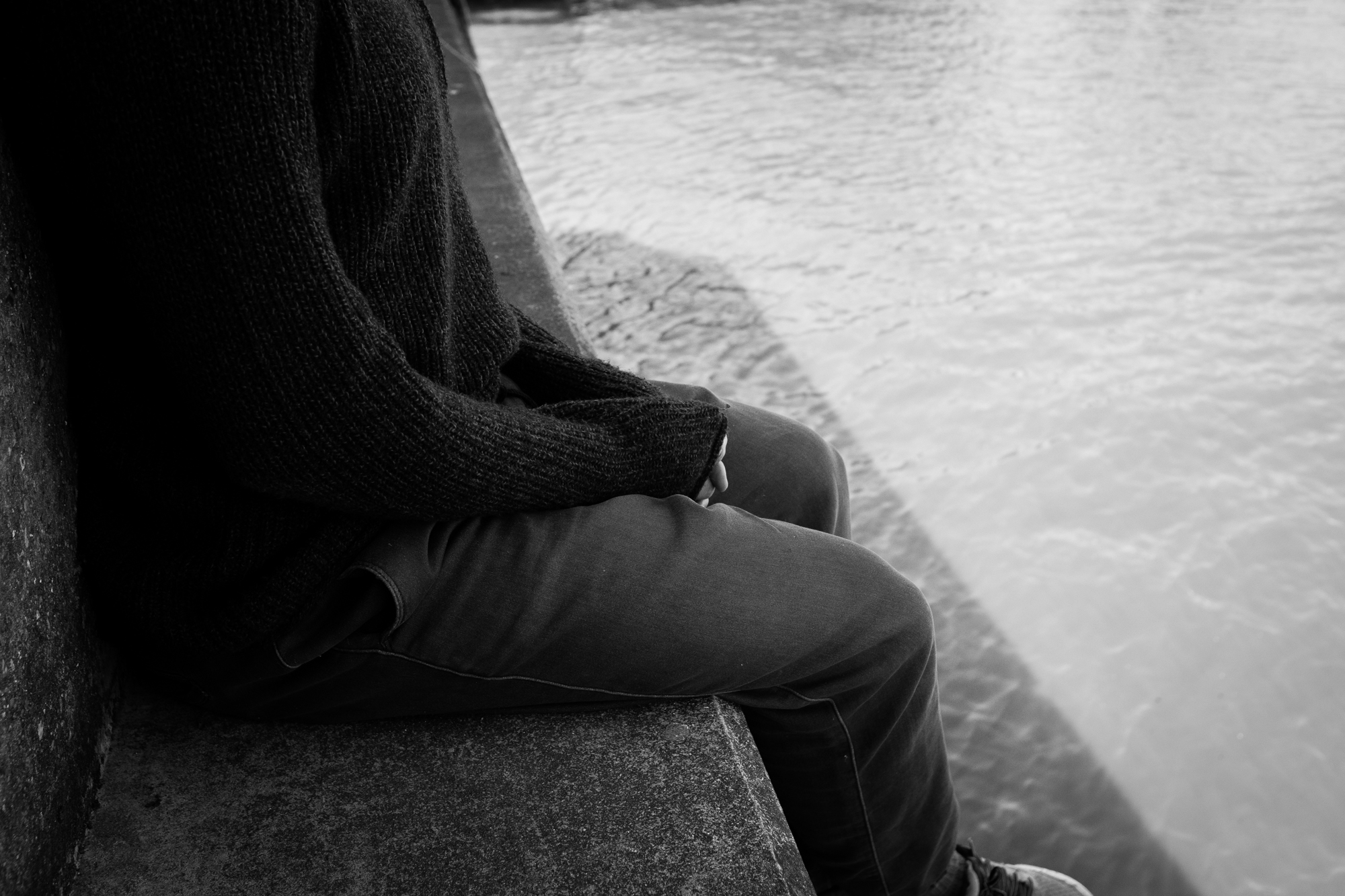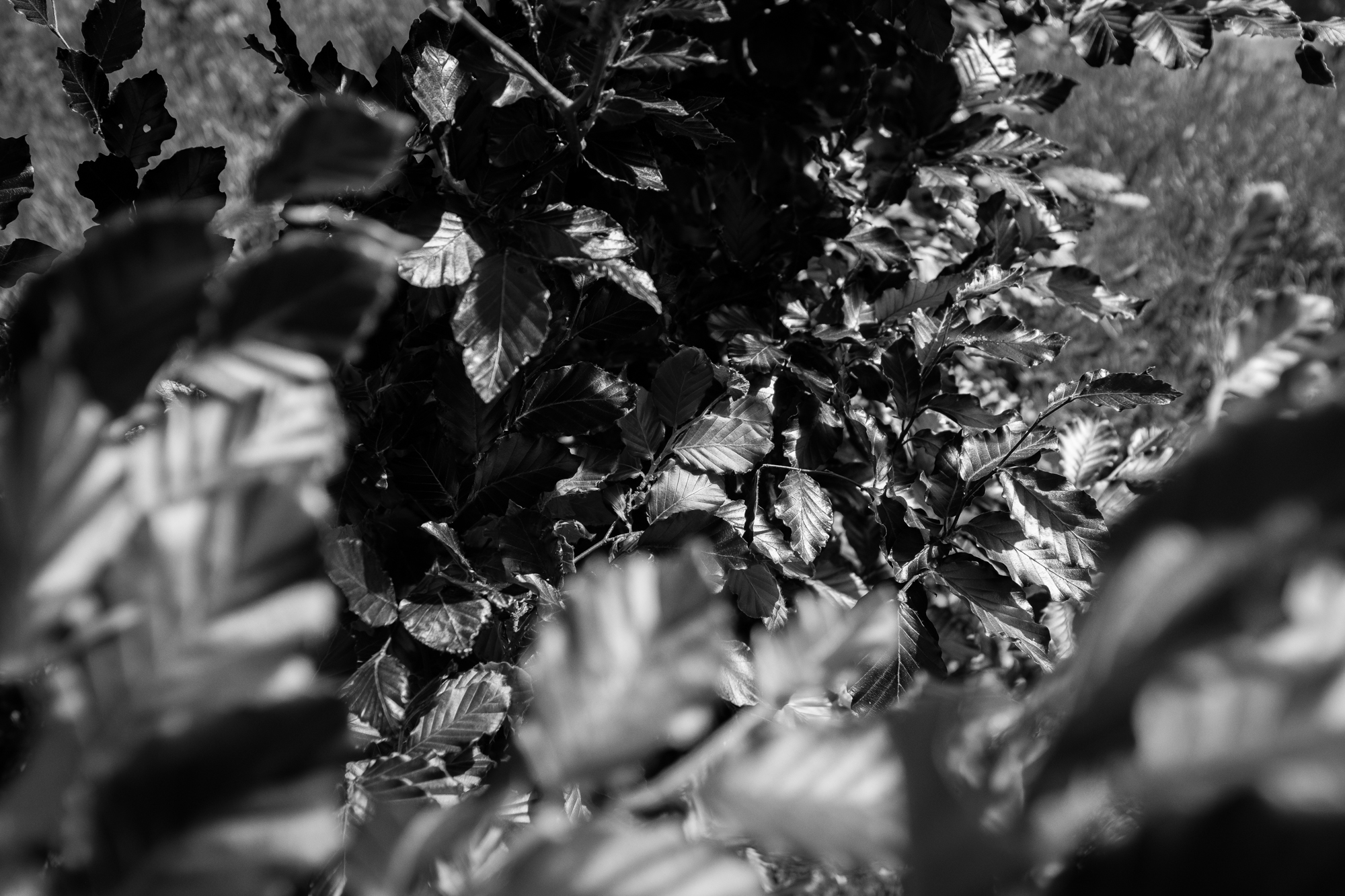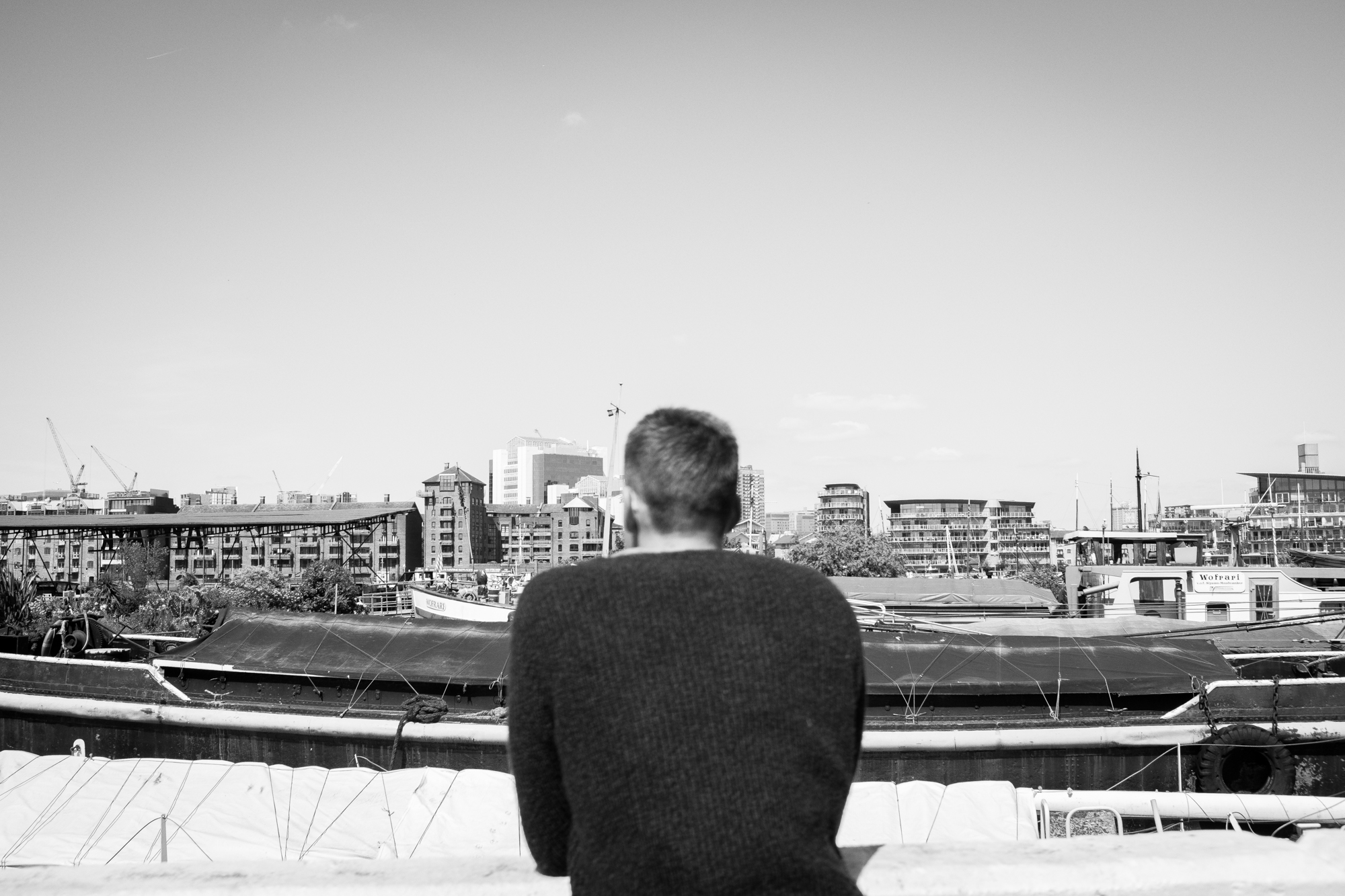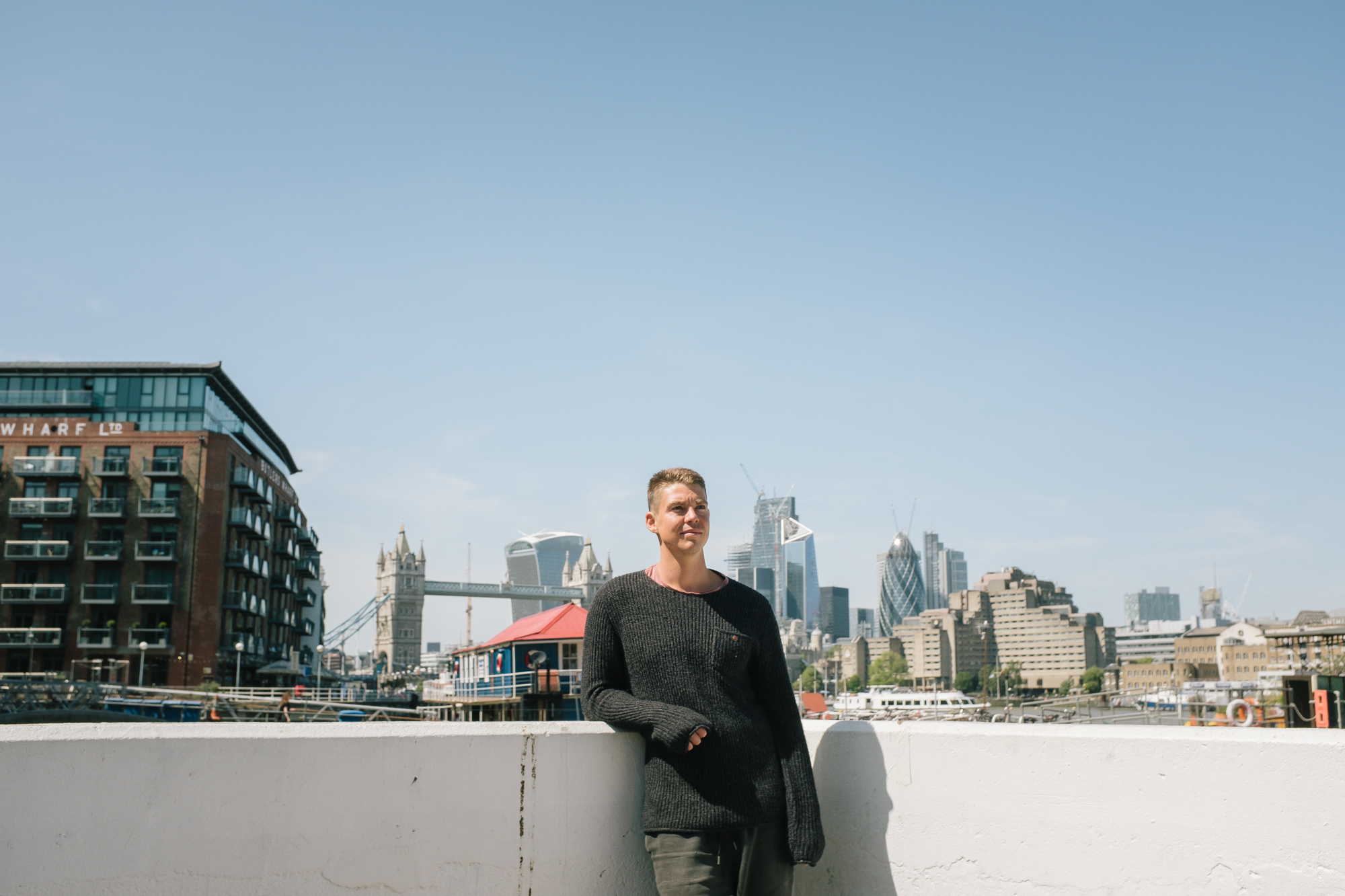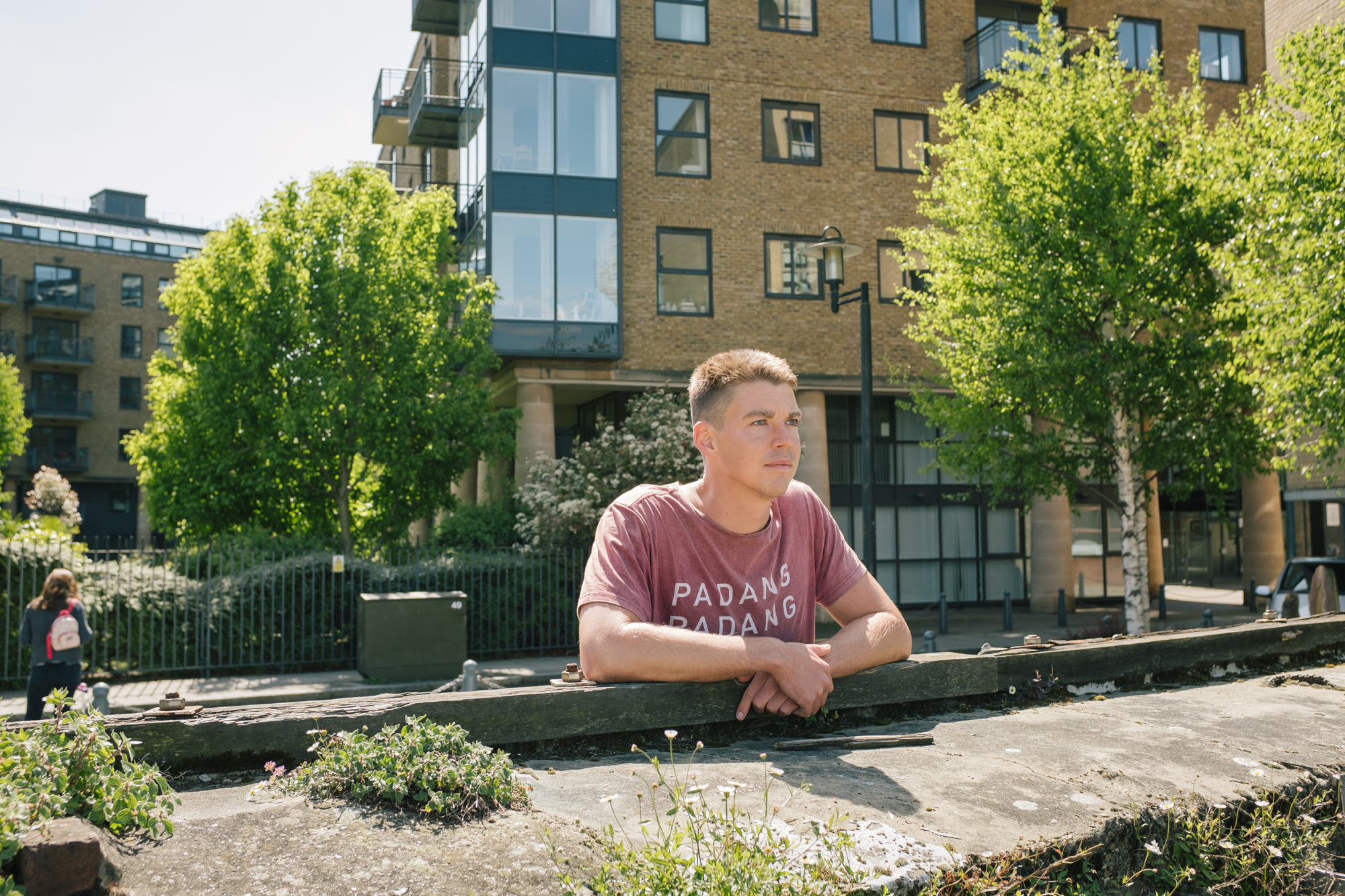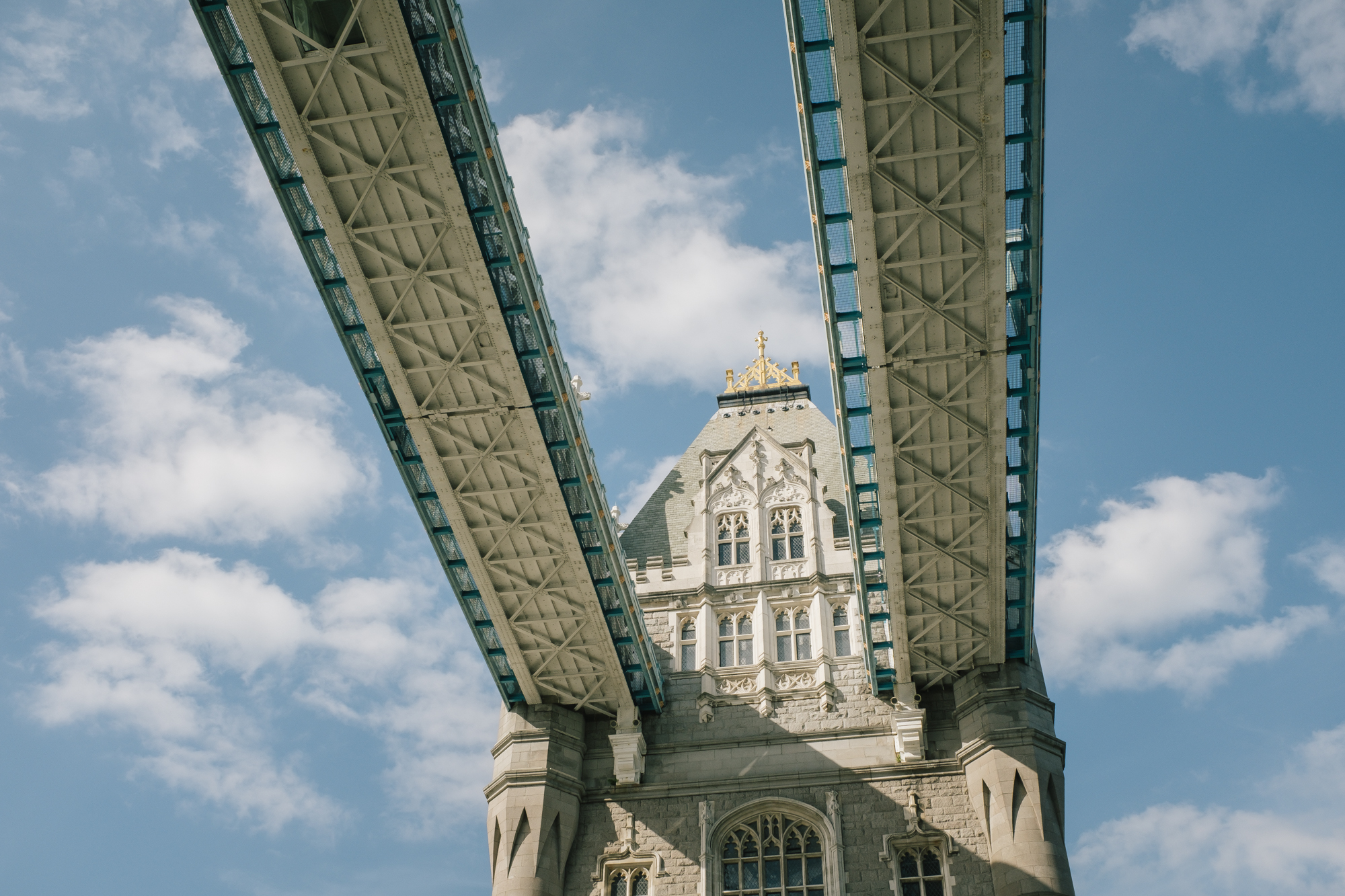Jonny & Sophie
Bermondsey, London
Hey Jonny, can you tell me about the original picture, where and when it was taken?
The original picture I took was one of several, I think we maybe even have 20 or 30 photos from different times that we went to that place. It's where we first really started getting to know each other I suppose, and it was a pinprick of calm in the chaos of London. Sophie and I used to go there, we'd take a little hip flask full of whiskey and she'd baked some brownies. Back then we used to smoke little role up cigarettes as well. This place was only five minutes from where we lived, so after work we just used to sit there as the sun was setting and talk about our day. We used to play this game called 'Just a Minute', where you have to talk about a subject for 60 seconds without deviating or without repeating the same word, and she always won! It just became this place that was our secret spot and where we'd go to hide away from the world, process our thoughts and talk about some of the things on our mind, so it's got a real significance for us.
Could you describe the photograph for me?
We've just been back there today which was lovely. Its just next to the Thames, in front of a collection of houseboats, this really alternative quirky houseboat community and you can see Tower Bridge in the distance. Sometimes we used to people watch and you can see these alternative people cycling back and clambering into their forested treehouses. There's a small wall, about shoulder height, you can climb over and clamber down, so you're kind of protected from any people walking past and you can just look out at the Thames, at the London skyline and it's a really perfect hidden spot.
Do you remember much about the day that that particular photograph was taken?
I think this one, we'd just got back from a trip away to Morocco. The photo that we chose, Soph was in a particularly playful mood and we were just messing around, it's a selfie and I think we were both in really high spirits, we'd had a great time away and it was good to be back in London, back home.
So that place was somewhere you went fairly regularly that you'd just go together?
Yeah, I was working from home, Sophie was working at St. George's Hospital, as an F1 doctor, so when she got back from work she'd bring some food and we'd just go there before winding down for the evening, a book end for the day really. It was nice that it was so close to our house as well. I really love being around water, and I think for us both there was something very grounding and calming about being by flowing water, so again, that was part of it. Fun to look at the houseboats too! As I mentioned earlier, I asked her then if we could have a boat, what would you call it and she said 'Pecky Flapper', which was such a ridiculous name that it just stuck in my mind!
Do you think one day you'll find that boat and you might have to call it 'Pecky Flapper'?
You know what, I think I will, if the boat comes along.
Is it a place that you go much now, that you've been back to?
I've just been back the once since losing Sophie. I went back with her brother Adam, who we also lived with in Bermondsey at the time, so he knew the spot as well. We just spent half an hour there reminiscing, some stories that we both had of Sophie, we took some whiskey as well that we drank as a bit of a ritual. I think that it's somewhere that I'd like to come back to over the years really, it's on of those places that feels like it's imbued with a sense of Sophie, with her playful essence. I hope to, I'd like to come back more.
How did it feel when you went back that first time? What was your emotional response?
It was really strong, as I think particularly in the weeks following losing Sophie, the first time that you go back to any of these places, it really hits you, really viscerally. I remember I was on the train up to the station to go to that place, and even just walking through the train station in Brighton, I just found myself in tears really in a very public place! I think it's not necessarily a quality of sadness, but just a real tenderness and intensity of emotion. In particular, this place by the Thames, it's where we first started falling in love really, so a lot of conversations that we'd had there, so it's got a real intense quality to it.
When we were chatting on email, you sent me a blog post, it was very eloquent, a beautifully written piece. What was it like to put those things, those feelings and emotions into words that you knew other people would read?
Thank you. The words that I wrote were actually the memorial speech that I gave. I spent quite a long time journalling after losing Sophie. For me, it really helped to process some of what I was going through, to get all of these very intense feelings out onto a page. Sometimes you have this weird feeling of overhearing yourself or seeing yourself writing something that you didn't realise you thought. It was incredibly cathartic. I'm sure that some people get a lot of value out of talking therapy, but I think for me, my therapy was writing. I had a real urge to try and understand what had happened, and also I really wanted to honour the person that Sophie was and to try and get across how much she meant to me and how honoured I'd felt to have been with her for those 3 years.
Something else that really touched me was that when I read it at the memorial service itself. My story was just one of 10's of really beautiful stories and it was amazing to feel like I just had this one puzzle piece of who Sophie was. Through these really heartwarming stories of Sophie when she was younger with her brothers and sister, to when she went to school in Costa Rica, and this patchwork of stories that filled in parts of her that I didn't even know about. I was left with a more complete understanding of who she was, which was just a real blessing. Through the stories that other people shared it really hammered home what a generous and creative and cheeky person that she was, and I felt really privileged to be part of that.
What was she like? Who was she to you?
The first time that we met, she bounded into this house that's just down the road in Bermondsey, where her brother, Adam, was living. She was carrying a sack of concrete and a couple of wooden posts and she was on a mission to erect a hammock in the back garden! I think that just sums up the type of person that she was, she was so full of energy and this luminous charismatic presence, who charmed everyone she was in contact with. She also had this remarkable capacity for empathy and to be there for her friends, as I found out in the years to come, who were often going through very hard times themselves. Even if she was going through quite a rough patch, she'd go out of her way to be there for her friends and family. She was, just, as I wrote in the blog, she showed me what it meant to be vulnerable, which I think as guys we tend to find quite hard, and she showed me what it meant to love. That was the gift that she gave me. She was just an incredible human being.
She was diagnosed with bipolar in her twenties. She went through quite a few tough times herself, even when she was going through moments of anxiety, she'd always make time to be there with her friends or for me, or sending crafty gifts and cards, home-baked goods to people, she was amazing.
You mentioned the gift she gave you of how to be vulnerable and to love, that's an incredible thing for her to impart to you and for you now to carry for the rest of your life. A hugely generous thing for her to demonstrate those to you. I wondered if you wanted to elaborate on her bipolar, was that evident day-to-day? How did it manifest itself?
First of all, I think depression and, in particular, bipolar, is really poorly understood by the majority of the population and even doctors. Even the people at the forefront of the field don't really fully understand exactly what causes it or exactly how to treat it, and it presents itself differently with different people. For Sophie, she initially struggled a lot with the diagnosis of bipolar, and the fact that it meant that she was meant to take medication daily for it. Also, being a doctor, it can affect your job opportunities to some extent, and it's on your record. Although most of her friends, family and me didn't ever judge her for it, I think in the community more widely, certainly, being seen as someone with bipolar has this stigma attached to it. So I think in the beginning she found it quite hard.
In terms of how it affected her, well my interpretation of it, there were these biochemical reactions that sometimes happened, or triggers. So certain things like having a particularly stressful shift at work or doing nights, long shifts, if something happens. Even not exercising or not getting enough sleep can be really powerful triggers. For Sophie, initially, in the first two years when we were seeing each other, she'd just go through lows and be depressed for days at a time. Later on, she started getting more anxious about certain things as well, which, for me was really hard. For anyone who's caring for or loves someone who goes through these struggles, it’s really hard to know what to do in those times because you feel really helpless when someone's in that place. Initially, I wanted to try, and this is probably a typically male response, but I wanted to try and fix things, try and be useful and try to make it better, but I think over time I just learnt to try and hold space for her, to just be there for her and remind her that she was loved and that this was just a bad storm that was coming and that at some point soon she'd feel good again.
Often it was less than a day or so, and then the next day she'd be jumping out of bed. She used to cycle 13 miles to Worthing hospital each way, so 26 miles of cycling a day. When we were living in Bermondsey she loved the idea of microadventures and she suggested we went out to Greenwich park to sleep there overnight, wake up at 5am for the sunrise and she'd cycle off to work! So this real adventurous spirit that was punctuated with these more intense low periods.
So someone who has this amazing zest for life, but as you say, marked by these lows that she struggled to escape. In the blog post you end by saying how this chemical imbalance in her brain led her to the tragically mistaken conclusion that in order to achieve this, she needed to take her own life. Its so desperately sad. You can tell me more if you want to, but please don't feel like you have to.
In terms of the chemical imbalance part, one of my doctor friends made the analogy of mental health challenges being almost equated to physical health, but we just don't see them that way. If someone has a broken leg, then it's completely normal to give them crutches, but it's different when it's not so visible. Something that I noticed or experienced very viscerally was how Sophie's mood could suddenly go from being completely herself to catasrophising things. She did this thing that she called 'compare and despair', again, it could just be a trigger, and what I would imagine be a series of chemicals that get released in your brain that hijack your rational prefrontal cortex and she just wasn't herself when she was in those states. It felt to me very much like her brain was hijacked.
In terms of the conclusions that she came to, I think, when she was in that state of anxiety, she believed two things really. She believed that she was being a burden to myself and to her family when she was like that, and that when she was in this state of anxiety that it was never going to get better. She didn't see that it was going to improve, and so the tragic and false conclusion that she came to was that it would be better for everyone else if she took her own life, and because she was this very stubborn and very driven person, she carried it out before anyone else could intervene.
I've heard other people talk about mental health and depression and the sense that you get to this point where you rationalise that the people around will be better off if you aren't there. Can you make any sense of that? Did you have to sympathise with Sophie?
It's really hard, because on the one side, you can't know exactly how the other person is feeling, you can only go on the things that they're saying and the things that they're doing. For me, I could only really offer love and support, and she herself would remember these things the day after and tell me it was ridiculous, she'd see how warped her perspective was in the days afterwards. It's just when you're in that moment, because of the way our brain and minds get hijacked it's impossible to see things clearly. It's like these lenses that you view everything through, even your memories as well, when she was in this state, she found it really hard to think back and remember all the positive and happy memories and experiences she'd had, the times when she did get better. I think it's like a lens that shuts down any sense of possibility or curiosity or excitement or things getting better in the future, and that's what makes it such a devastating condition and illness.
Has it changed your perspective on your own mental health?
I think it's changed my perspective on how our brains work, how they operate, and certainly on the conversation that needs to be had on mental health in our country and the world more broadly. I think it does feel like forward steps are starting to be made, particularly in recent years, and there is a wider conversation that's happening. I'm quite fortunate in that I tend to have quite an optimistic outlook on life and I feel like I was often quite a grounding presence for Sophie at certain times. It does make you really aware of how all of the realities that we construct, whether they are positive or negative, are essentially stories, and we all have our own filters on those realities. It's almost a challenge to be as conscious as you can and as intentional as you can to try and choose which filters you're viewing the world through. I think either extremes are not necessarily a good thing, but in my mind there's no one objective reality, we just get to choose the stories that we adopt and the perspectives that we have on everything. It's a challenge to make more generous assumptions on the people that we meet. It's definitely got me thinking a lot and I know Sophie's family have been particularly engaged with ways that they can help to forward the conversation around bipolar and mental health issues and speaking to some great people.
That's so positive, because often in circumstances such as these where someone has taken their own life, there can be a lot of shame attached to it, people don't talk about it. What elements have encouraged you to be open about it?
Almost inevitably, following suicide, there is always going to be, in my experience, questions of what if, guilt. I'd been away, I was in Portugal at the time. Sophie had been with me literally the day before, we'd gone climbing together and then she'd flown back to start work on the Monday. She'd been to a gig the night before and had a great time, sent me a message. It felt like it was the perfect storm of variables where if one of these small things hadn't been the case, this wouldn't have happened and she'd still be here. So there was a lot of questioning and feelings of guilt, which even at the time, if I didn't feel like they were necessarily rational, they still come up. I can imagine why that stops a lot of people from talking about it, because it's not only very painful, but there can be a lot of shame associated with it. What I'm thinking at the moment is, that whenever something is in the dark like that, I think it can start to fester, and if you're able to talk about things, shine a light on them and be curious, then they tend to lose their grip on you. Certainly, if there are other people out there that have lost someone to suicide and they're still going through these dark emotions, feelings of anger at both the external world and inwardly, I think it's important to try and have the courage to look at them, and at least talk about them if you can.
Do you feel like you've been able to separate yourself from any feeling of guilt? I'm very cautious, I don't want to place any time periods of things, they take as long as they take, but is it something you've felt able to move on from to leave any sense of guilt behind?
It really comes in waves, in my experience, it comes in stages. Initially, there was losing Sophie and the absence of her physical presence. I felt guilty about making any plans or thinking about the future which didn't involve her, because we'd crafted this idea of how the next few years were going to look. We were maybe going to move to Bristol or do some travelling, all these things, and somehow making plans on my own felt like a betrayal of our relationship to some extent. That was really hard initially. Even laughing or finding things funny, feeling excited about certain things, again, came twinged with this feeling of guilt, asking myself why I'm not sad all the time and thinking I should be mourning and grieving and all these things.
I'd met other people who five or ten years after losing somebody close to them were still very angry and had a lot of unprocessed grief and trauma, and I knew that I had a tendency to maybe not feel my emotions as much, maybe it's being British as well, something about out DNA unfortunately, so I ended up doing a Vipassana, a 10-day meditation retreat, which is a silent retreat. That was incredibly hard and challenging, but also I think it gave me some of the solitude and space to allow myself to surrender to some of these feelings. Lots of people say when you lose someone, you're being really strong, stay strong, and to me it was almost the opposite, you need to learn how to not tense up, surrender into the obliterating pain and let it completely break you. That experience for me, towards the end of the Vipassana, once I'd allowed myself to feel it, it kinds of turns a little bit and became more a sense of tenderness. I felt connected to Sophie as well, I've spent the last six months revisiting the places and the people that I felt most connected with her. Her close friends in Colchester and Bristol, this spot in Bermondsey, a place that's really special near to Colchester where we went away together and also down in Brighton as well. It's just been a journey really, going back. In the sea as well, we used to go swimming in the freezing cold ocean in Brighton in the mornings before work. There's something about being in the freezing sea, I feel really close and connected to her. It's been a good home for me.
Are there quite a few things you've done to remember Sophie, you mentioned those places, but else what have you done proactively?
I think there have been lots of little things. In the weeks after her memorial we went to this place, a nature reserve on the coast of Essex. There's a little wood cabin there, so all of our close friends and family went there for a few days, went for a walk along the river and spread Sophie's ashes off the bridge where we used to kayak. When we used to approach this bridge, Sophie suggested that we pretend to be trolls, hide under the bridge and shock the living daylights out the these birdwatchers that were walking above! It's just a really great place, we made friends with 'Sammy the Seal' who was there as well. Going back there has been really nice.
Sophie's family also recently planted two Cherry Blossom trees near Brighton, just in the park opposite where we used to live. For me, going in the sea, being in nature. She loved flowers too, so there's been a lot of sunflowers and orchids that have been handed out, given away, planted. So lots of little things really, and it's an ongoing thing to find these ways to remember and pay tribute to Sophie. There's a bench that's going to be taken to this place in Colchester soon as well.
Lots of those are connected to visiting significant physical places, which is what we've done today in London. What was it like when I asked you to pick a photograph for the project?
Initially, I wasn't sure where to chose, because there was a lot of places that meant a lot to us. I was going through my photostream and when I say this one it just jumped out at me as being completely the right one for this project. It's where we met and it's really got a deep sentimental value for me. In terms of going back to it, as I said, it's really filled with a lot of emotion and significance, but at the same time it feels good to be there too.
What was it like, sitting there and re-taking it?
It felt strange at first. As I sat there as you were looking at different angles to shoot and looking at the bridge, I was remembering how we used to sit and look at the houseboats. Some of the memories came back, so it was really nice.
In your blog, you mentioned that you'd travelled lots together, I'd love to know more about where you went together on those adventures.
We were really lucky, and we both loved to travel, so any holiday that Sophie got from being an F1 doctor we jumped on to try and go places. We initially had our first trip together to Morocco, and we returned there twice in the years follow, and this place in Taghazout, it means a lot to me, and I took her surfing. I think it's one of the places that we really fell in love, getting lost in the streets of Marrakech. She wrote a story about these 'misadventures', as she called them, that we had, being sick in the bus on the way back to Marrakech and lots of lovely things like that!
We also did quite a bit of exploring in England, we borrowed a friends camper van and drove down to Cornwall and had a really lovely time exploring the countryside down there. Sophie's sister also got married up off the coast of Scotland in Mull, so we went up there too. We went to Bali last year which was really lovely, I did a yoga training out there and we had 3 really amazing weeks. Sophie learnt to dive out there and her instructor said that she was the only person she'd ever seen who was so excited to be underwater that she did somersaults! She was just like a little kid underwater. She really loved nature, so we would just try and find places that we could be out in nature.
The big trip that she did, that I wasn't able to join her on as I was working at the time, was to cycle from Vancouver to Los Angeles.
That's a long way!
Yeah, it's 3000km. Which is crazy really. She went out on her own, made friends along the way. It was lovely being back here and getting these daily updates about the adventures she'd been on, how many kilometres she'd done, photos of Sealions and these amazing off grid living places where she'd been staying. We both loved travelling, so it was a big part of our relationship.
It seems so unfair that you only had 3 years together, but it sounds like you spent them really well together.
I certainly feel lucky to some extent, and I think we were able to cram in a lifetime's worth of experiences into those 3 years, so yeah, for that I'm definitely grateful.
You mentioned that as she was a doctor that Sophie wanted to make a positive contribution to the world, which is an amazing notion, something that anybody can try and hold onto. What did that look like? As a doctor, she's looking after patients, or did that manifest itself outside of work?
All the time! Everything from researching what happens to the recycling, to buying eco-friendly coffee cups for friend's birthday's, to making crafty and creative gifts for everyone. She did a shark conservation project in Bali when she was out there, helping to research the local shark populations over there and contribute to that. That was one of the things she struggled with, I think she wanted to feel like she was making a different with her career and really making a positive impact. Sometimes she was really hard on herself and she'd judge herself for being too materialistic. She was great at getting me to not have so much shit in my life! So we had this bag by the door a lot of the time where I'd just find some of my old shirts just mysteriously disappearing into! So yeah, downsizing, not being too materialistic, donating money to Cool Earth and various other charities, friends doing great projects, so she was always looking for different ways to contribute in some way, with her time or creativity or through her work as a doctor. It was one of the most important things for her, for sure.
That's amazing, it sounds like she was very aware of the part she was playing in the world. I was wondering if there was anything else you wanted to add?
The only other thing I'd like to add, touching on your motivation for this project and the reason why it resonated with me in the first place is that I think talking about death in our culture and society is so rare. It's really unusual to have honest conversations about death generally and losing people that are close to you. Intellectually, we all know that at some point we're going to die and those close to us are going to die, but it really doesn't hit home emotionally, on a visceral level until you go through something like this, or at least it didn't for me. I think that, along with the shittiness of that process and how devastating it is, that there's also an awareness of how, not only how short our lives are, but also what matters at the end of it all as well. Thinking to Sophie's memorial, you're really touched with how, whilst these achievements and things that you might do feel so important at the time, what really matters and the stories that people share at the end are the stories of generous you've been, the times that you showed kindness, the things that you loved. That's the stuff that matters. I feel like we are so disconnected from that in day-to-day life. This awareness of the impermanence of everything around us. It just gives you this sense of clarity, it makes a lot of things which would normally piss you off or trigger you to be angry, it just doesn't matter. I think that that sort of perspective is something I'd like to hold onto and the more people that can talk about death and not have it be this taboo part of our culture, I think that's only going to be a good thing. I guess, thank you for starting this project, I think it's a really meaningful and beautiful thing and I'm glad to be part of it.
That's very kind. Thank you for taking part and sharing your story. It's not an easy thing to engage with, go over all the stories and everything. In light of what you were saying, whether you feel like you're a different person? What's changed in you as the result of your experience? You talked about having a new perspective...
At some point during that retreat in the weeks afterwards, it feels like you've been broken open. From that state, you feel much more aware of everything. That can sometimes be overwhelming, it can be a double edged sword. I feel like I'm rebuilding the foundations of who I am at the moment. I'm trying to make decisions from that place of feeling open and connected. Without a doubt it's changed me. Some of the conversations that I've had with other people who've lost those close to them have felt really profound. I don't know what the future's going to hold, but I know that I'll always carry Sophie's spirit and energy with me and I want to try and spend as much time in nature, which is where I feel closest to her, and live in a way that would make her proud if she was here to see it.
Thinking back on those years we shared,
I marvel at how you risked delight,
Amidst those waves of your own anguish.
But perhaps your greatest gift,
Was the way in which,
you taught me how to love.
As you did,
with every fibre of your being.
And now that you are gone,
I know what I must do.
I must seek out,
the trees,
the flowers
and the sea!
All those radiantly alive places,
That you held in your affection.
For in their presence,
I still feel your spirit dancing.
Only now do I understand,
That your final gift,
Was a beautiful invitation,
An invitation,
To learn to fall in love
With the world
Anew.
by Jonny Miller
